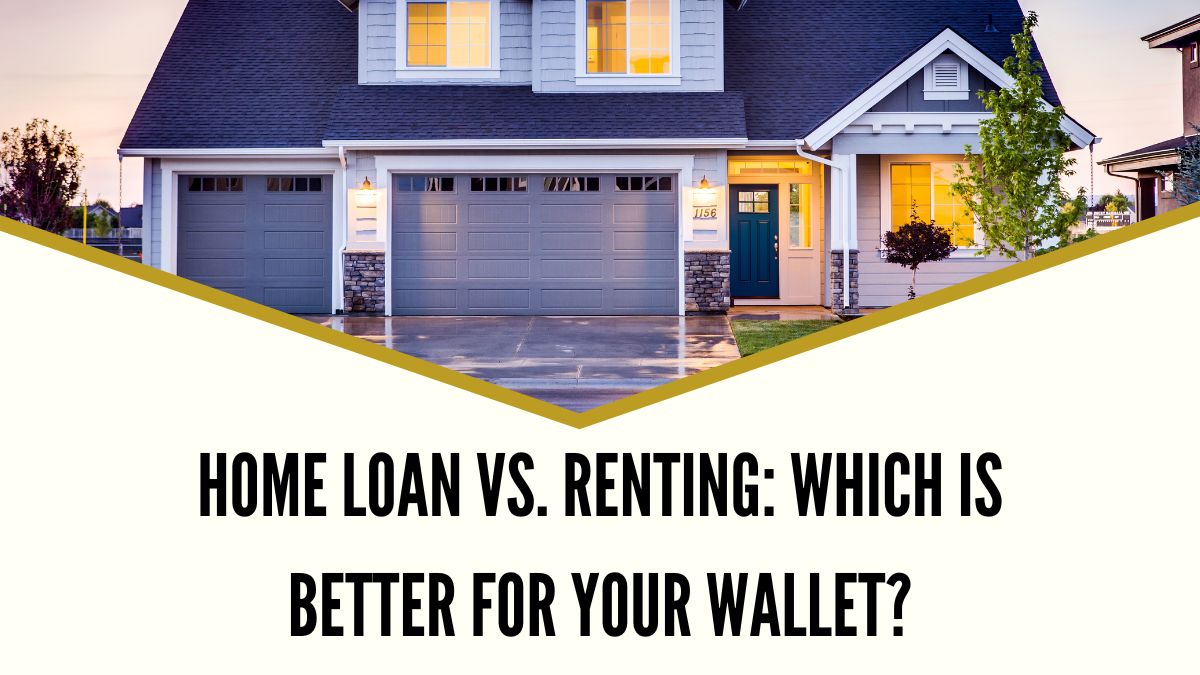The age-old question: should you buy a home or keep renting? It’s a big decision, and there’s no one-size-fits-all answer. Depending on your financial situation, lifestyle, and long-term goals, each option has its pros and cons. Let’s break it down.
Renting: Flexibility and Less Commitment
When you rent a property, you pay a landlord for the right to live there. It’s important to know the following:
Pros
- Flexibility: Renting offers more flexibility. You can move easily when your lease is up, which is great if you’re not sure where you want to settle down or if your job requires frequent relocation.
- Lower Upfront Costs: You typically only need to pay a security deposit and the first month’s rent. This is significantly less than the down payment and closing costs required for a home loan.
- Maintenance is the Landlord’s Responsibility: You don’t have to worry about fixing a leaky faucet or replacing a broken appliance. That’s the landlord’s job.
- Predictable Monthly Expenses: Your rent is usually fixed for the duration of your lease, making it easier to budget.
- No Property Taxes or Insurance: These costs are typically covered by the landlord.
Cons
- No Equity: You’re essentially paying someone else’s mortgage. You won’t build any equity in the property.
- Rent Increases: Your rent could increase when your lease is up, making it harder to budget in the long run.
- Limited Customization: You can’t make significant changes to the property without the landlord’s permission.
- Less Stability: You could be asked to move when your lease is up, even if you don’t want to.
Home Loan: Building Equity and Stability

Taking out a home loan means you’re borrowing money from a lender to purchase a property. Here’s what you need to consider:
Pros
- Building Equity: As you pay down your mortgage, you build equity in your home. This equity can be a valuable asset in the future.
- Stability and Security: Owning a home provides a sense of stability and security. You can’t be asked to move unless you fail to make your mortgage payments.
- Potential for Appreciation: Property values can increase over time, which means your home could become more valuable.
- Tax Benefits: In many places, you can deduct mortgage interest and property taxes from your income tax.
- Freedom to Customize: You can make changes to your home to suit your tastes and needs.
Cons
- Significant Upfront Costs: You’ll need a down payment, closing costs, and other expenses.
- Long-Term Commitment: A mortgage is a long-term commitment, typically 15 or 30 years.
- Maintenance and Repairs: You’re responsible for all maintenance and repairs, which can be expensive.
- Property Taxes and Insurance: You’ll have to pay property taxes and homeowners insurance.
- Risk of Depreciation: Property values can also decrease, which means your home could be worth less than you paid for it.
- Less flexibility: it is harder to relocate.
Factors to Consider When Making Your Decision
To help you decide whether to rent or buy, consider the following factors:
Your Financial Situation
- Can you afford a down payment and closing costs?
- Can you afford the monthly mortgage payments, property taxes, and homeowners insurance?
- Do you have a stable income?
- Do you have an emergency fund for unexpected repairs?
Your Lifestyle
- How long do you plan to live in the area?
- Do you need the flexibility to move frequently?
- Do you want the freedom to customize your living space?
Your Long-Term Goals
- Do you want to build equity?
- Do you want to own a home for retirement?
- Do you want to pass on a property to your heirs?
The Current Market
- What are the current interest rates?
- What is the current housing market like in your area?
- What are the rental rates in the area?
Opportunity Cost
- What could you do with the money you would use for a down payment?
- Could you invest that money in a way that would generate a higher return?
Example
Let’s say you’re considering buying a $300,000 home with a 20% down payment ($60,000) and a 30-year fixed-rate mortgage at 6%. Your monthly mortgage payment would be roughly $1,438 (principal and interest). Add in property taxes, insurance, and potential maintenance, and your total monthly housing costs could be around $2,000.
If you’re renting a similar property for $1,800 a month, renting might seem cheaper in the short term. However, over 30 years, you’ll have paid $648,000 in rent, with no equity to show for it. With a mortgage, you’ll own the home outright after 30 years, and it could be worth significantly more than you paid for it.
Read More:
The Bottom Line
There’s no right or wrong answer when it comes to renting vs. buying. It’s a personal decision that depends on your individual circumstances.
- Rent if: you need flexibility, have limited funds for a down payment, or don’t want the responsibility of homeownership.
- Buy if: you want to build equity, desire stability, and are ready for the long-term commitment of homeownership.
Before making a decision, carefully evaluate your financial situation, lifestyle, and long-term goals. Consider consulting with a financial advisor or real estate professional to help you make the best choice for your future.

